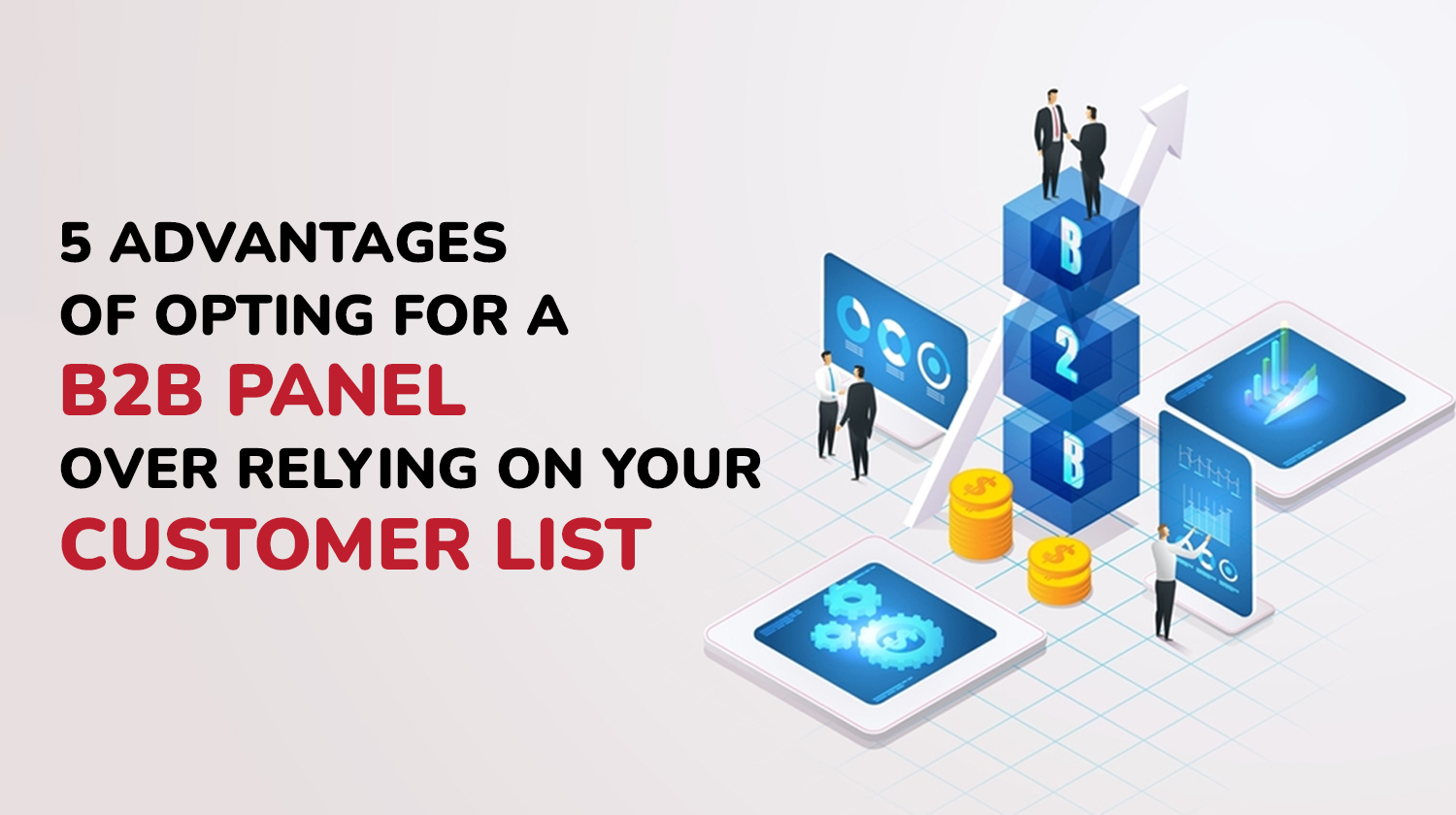
In the ever-evolving landscape of B2B marketing, businesses are constantly seeking innovative strategies to gain insights, understand market dynamics, and stay ahead of the competition. One powerful tool gaining popularity is the B2B panel. In this blog post, we’ll explore what a B2B panel is, why it is preferable to using your customer list, and the advantages of incorporating panel discussions into your marketing strategy.
What is a B2B Panel?
A B2B panel refers to a group of experts or representatives from different businesses or industries who come together to discuss specific topics, share insights, and provide valuable perspectives. These panels are typically organized to gather information, conduct market research, and generate comprehensive data that can be utilized for strategic decision-making.
What is a Business Panel?
A business panel, in essence, is a subset of a B2B panel. It involves assembling a group of professionals or experts within a specific industry or niche to discuss relevant subjects. These panels provide a platform for open dialogue and knowledge exchange, facilitating a deeper understanding of market trends, challenges, and opportunities.
What is the Purpose of a Panel?
The primary purpose of a B2B panel is to collect diverse perspectives and insights from industry experts. This allows businesses to gain a holistic understanding of market dynamics, consumer behavior, and emerging trends. The information gathered from these panels can be instrumental in shaping marketing strategies, product development, and overall business decisions.
What are the Advantages of Panel Discussion?
1. Diverse Insights: One of the key advantages of a B2B panel is the diversity of perspectives it brings to the table. With participants from various backgrounds and industries, you gain a comprehensive understanding of market nuances that may be missed when relying solely on your customer list.
2. In-depth Market Research: B2B panels provide a platform for in-depth market research. Through open discussions and Q&A sessions, businesses can delve into specific topics, gaining valuable insights that go beyond the surface-level information provided by customer lists.
3. Real-time Feedback: Unlike static customer lists, panels offer real-time feedback. This dynamic interaction allows businesses to adapt and refine their strategies promptly, keeping pace with rapidly changing market conditions.
4. Networking Opportunities: Panel discussions create networking opportunities for participants. Building relationships with industry experts can open doors to collaborations, partnerships, and shared resources that contribute to business growth.
5. Enhanced Credibility: Being associated with a well-curated B2B panel enhances your business’s credibility. It showcases your commitment to staying informed about industry trends and your willingness to engage with thought leaders.
How Do You Run a Successful Panel Discussion?
Running a successful panel discussion involves careful planning and execution. Here are some key steps:
1. Select Diverse Panelists: Ensure a mix of experts representing different facets of the industry to provide a well-rounded perspective.
2. Define Clear Objectives: Clearly outline the objectives of the panel discussion to guide the conversation and focus on relevant topics.
3. Engage the Audience: Incorporate audience participation through Q&A sessions or live polls to enhance engagement.
4. Moderate Effectively: A skilled moderator is crucial for steering the conversation, managing time, and ensuring all panelists have an opportunity to contribute.
5. Promote Before and After: Generate interest in the panel discussion by promoting it beforehand, and leverage the content afterward for continued engagement.
Why A B2B Panel Is Better Than Using Your Customer List?
While customer lists are valuable for certain aspects of marketing, a B2B panel offers unparalleled advantages:
1. Broader Insights: A B2B panel provides a broader spectrum of insights by tapping into the collective knowledge of industry experts beyond your customer base.
2. Objective Market Analysis: Panels facilitate objective market analysis by incorporating diverse opinions, reducing the risk of bias inherent in customer lists.
3. Adaptability: The dynamic nature of panel discussions allows for adaptability, enabling businesses to respond promptly to changing market dynamics.
4. Thought Leadership Positioning: Engaging with a B2B panel positions your brand as a thought leader, contributing to industry discussions and showcasing your commitment to staying at the forefront of your field.
5. Networking and Collaboration: B2B panels create networking opportunities that can lead to collaborations, partnerships, and mutually beneficial relationships for business growth.
In conclusion, while customer lists remain valuable for targeted marketing, integrating B2B panels into your strategy brings a wealth of diverse insights, real-time feedback, and networking opportunities that can elevate your business to new heights. Embrace the power of panel discussions to stay ahead in the competitive B2B landscape.







